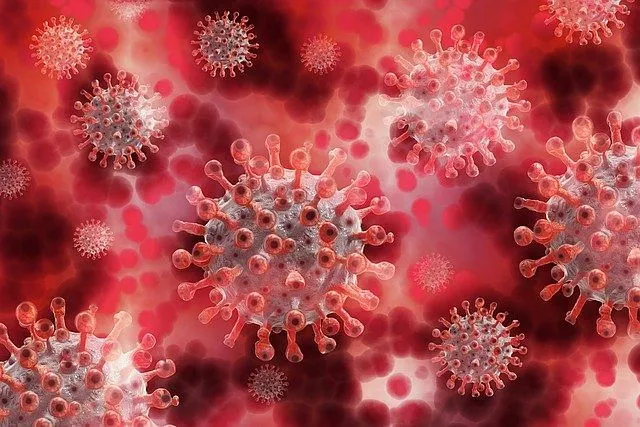Abdul Kalam
Ensuring the health and welfare of animals is not only a moral obligation but also essential for human health and the sustainability of our planet. Last Saturday of April is observed as World Veterinary Day in recognition of the contributions and efforts made by the veterinary professional towards promoting human–animal-environmental health. The main motto of this jubilant commemoration is to augment awareness about the health and welfare of animals and thereby fostering and cultivating the spirit of global cooperation among the stakeholders.
Every year, the World Veterinary Association sets a unique theme for the celebration and for 2023 the theme is ‘’Promoting Diversity, Equity, and Inclusiveness in the Veterinary Profession’’. Veterinary professionals must be respected irrespective of age, class, ethnicity, gender, race and religion for their contributions towards societal transformation. The occasion serves to highlight their contributions not only to animal health but also to the field of medical science. The World Veterinary Association recognizes the interdependence of humans and animals in coexisting on this planet, and this special day is a celebration of this symbiotic relationship. Diseases such as rabies, avian influenza, and Ebola, transmit from animals to humans. Veterinarians play a vital role in identifying and managing these zoonotic diseases. They work closely with physicians and public health workers to detect, prevent, and control such outbreaks. Veterinarians are also involved in food safety and food security, ensuring that the foods of animal origin are safe and free from contaminants, and that the production of these eatables is sustainable and ethical. Furthermore, veterinarians have a crucial role in maintaining the health of the environment. They work to prevent the spread of diseases and parasites from animals to the environment and vice versa. They are involved in monitoring and managing environmental factors that affect animal health, such as air and water quality, climate change, and habitat conservation. Veterinarians also contribute to the welfare of domestic, pet, laboratory and wild animals by advocating for proper husbandry practices, ethical treatment, and welfare regulations.
Fostering diversity in the veterinary field is imperative for multifarious reasons. Primarily, a heterogeneous workforce can engender a plethora of perspectives, diverse experiences, and innovative ideas that can embellish the profession and augment the caliber of care rendered to animals. Secondly, promoting diversity within the veterinary profession can serve as a mechanism to redress the existing disparities in animal health outcomes that disproportionately impact marginalized communities. It is worth noting that historically, women and underprivileged individuals have faced obstacles in the field primarily attributed to limited knowledge and awareness regarding the opportunities the profession provides.
World Veterinary Day 2023 also highlights the importance of inclusiveness in the veterinary profession. Inclusiveness involves creating an environment that values and respects the contributions of all individuals, regardless of their background or identity. Promoting diversity, equity, and inclusiveness in the veterinary profession requires collaborative efforts from Government, veterinary organizations, educational institutions, professional associations, and individual practitioners. It involves implementing policies and practices that support diversity and inclusion, such as providing scholarships and mentorship programs for underrepresented students, promoting diversity in leadership roles, and creating a safe and inclusive workplace environment and ending the discrimination, if any, that the veterinary professionals face. It also involves raising awareness and advocating for policies that address disparities and promote fairness and equity in the profession.
World Veterinary Day is not only a celebration of the accomplishments of veterinarians, but it is also an opportunity to highlight the challenges they face. Veterinarians often work in challenging conditions, facing risks such as diseases, injuries, and occupational hazards. They work for long hours, are on-call 24/7, and face emotional and psychological stress due to dealing with animal suffering and euthanasia. There may also be limitations in resources, funding, and infrastructure in many regions, particularly in developing countries, which can affect the quality and accessibility of veterinary care. The World Veterinary Day holds importance as it acknowledges the crucial role the veterinarians play in societal development.
SKUAST-Kashmir as a socially responsible institution has redefined its vision, mission and goal keeping in view the changing global scenario and New National Education Policy 2020. The emphasis is on making SKUAST-Kashmir a preferred destination for agri-education for its creativity, innovation, entrepreneurship, leadership, and social and gender equity. Celebration of World Veterinary Day 2023 provides us with an opportunity to renew our commitment towards the advancement of the veterinary profession and work to make the world better able to prevent, predict, detect, and respond to health threats and improve the health of humans, animals, and the environment while contributing to sustainable development.
Farooz A Lone works as an assistant professor at SKUAST-K’s Division of Veterinary Gynecology and Abdul Kalam is an undergraduate student of BVSc at the Faculty of Veterinary Sciences, Shuhama.
Disclaimer: The views and opinions expressed in this article are the personal opinions of the author. The facts, analysis, assumptions and perspective appearing in the article do not reflect the views of GK.






